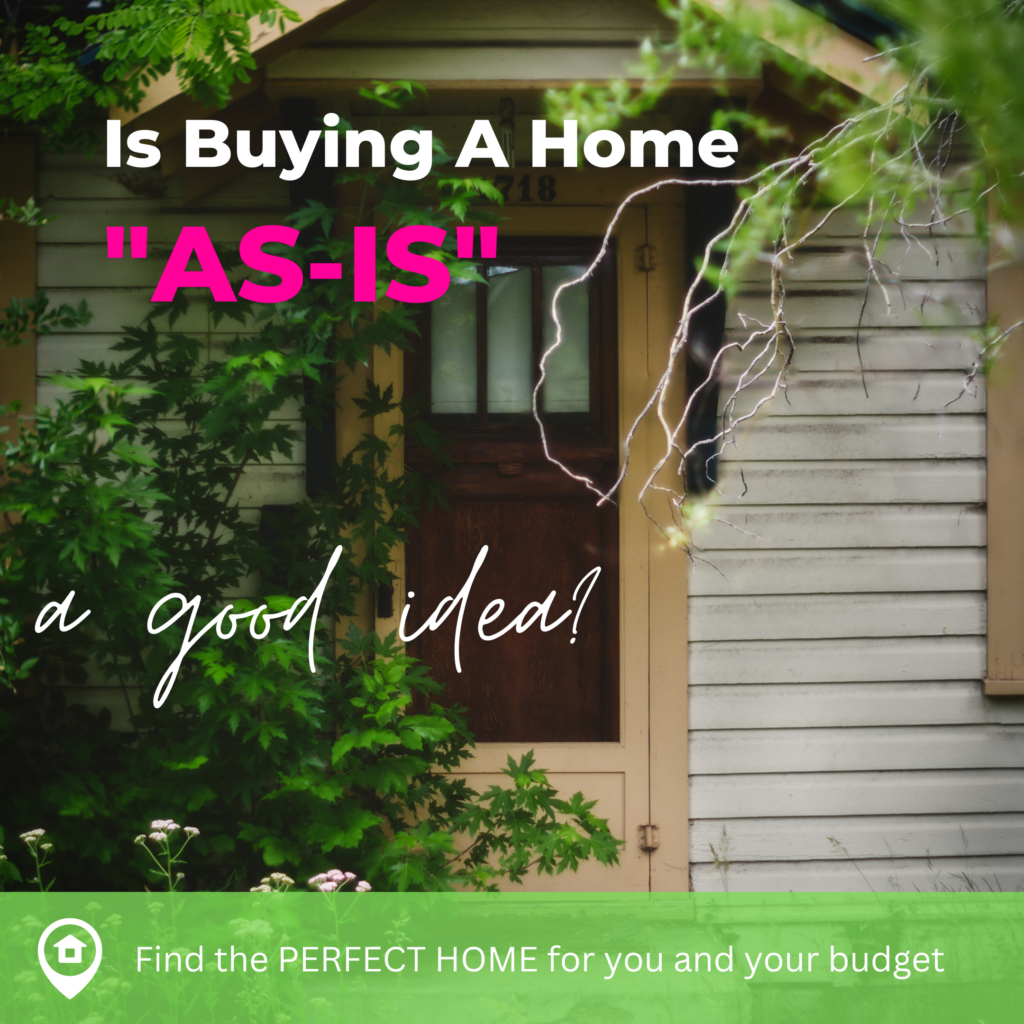
Week 8
My 8-week series, How to Find the Perfect Home for You and Your Budget, will show you how your first home can reflect your wants, needs, and—most importantly—your budget.
You don’t have to wait until you’ve built up years of equity or a massive down payment to dream big. Even as a first-time buyer, it’s possible to find a home that excites you and makes financial sense. You just need the right guidance, a solid mortgage strategy, and a clear sense of your priorities.
For this final week, we’re taking a closer look at “as is” homes—and whether they’re worth considering for your first home purchase.
Are you hooked on HGTV shows where outdated homes get transformed into dream spaces? Maybe you’re thinking a fixer-upper could be your way into the market.
Homes like these are often sold “as is.” But it can be hard to tell if an “as is” home is a hidden gem—or a money pit that’s more trouble than it’s worth.
Not all “as is” homes are created equal. That’s why this article is here to help you understand what “as is” really means when it comes to buying your first home—so you can decide whether or not to consider one.
A “fixer upper” can be a smart financial move, especially if it helps you get into a neighborhood you love. But some “as is” properties come with deeper issues that could cost you far more than you expected.
Since this is your first home, it’s especially important to think carefully about whether you’re ready to take on a place that needs a lot of work—physically, financially, and emotionally.
If you do decide to make an offer on an “as is” home, here are the steps you’ll want to take to protect yourself.
Understand What “As Is” Means
“As is” means the seller won’t make any repairs to the home before selling it. You’re agreeing to buy the property in its current condition—whatever that may be.
That could mean a home that’s perfectly livable but dated… or one that needs a complete overhaul. There’s a wide range of possibilities.
Know What’s Expected from Sellers
Every state has different laws about what sellers must disclose when selling a home “as is.” And every home—and seller—comes with its own unique situation.
Some states require sellers to share any known issues with the property in writing. But if the seller truly doesn’t know what’s wrong—for example, if they never lived there themselves—they’re not responsible for what they don’t know.
That’s why getting disclosures in writing is key. It gives you a paper trail in case any problems show up later.
If the seller is a landlord, a bank, or someone selling on behalf of an estate, be extra cautious. These sellers might not be aware of underlying issues—and you’ll want to be especially thorough during your due diligence.
How to Protect Yourself
Before you get emotionally attached to any “as is” home, take a few extra steps to make sure you know what you’re getting into.
Get a home inspection.
Always include an inspection contingency in your offer. This gives you a window of time to bring in a licensed home inspector and assess the home’s true condition.
They’ll check for things like foundation issues, roof damage, water leaks, mold, or pests—issues that can seriously impact your finances down the line.
Get contractor bids.
If the inspection uncovers needed repairs, get estimates from local contractors. These numbers will help you understand your true costs—and might even help you negotiate the purchase price.
Take It, or Leave It
An “as is” home could be the right choice for your first home—as long as you’ve done your homework. A thorough inspection, some solid planning, and a realistic view of your finances can help you decide whether it’s a smart move.
Ask yourself honestly:
Do I have the time and patience to take on repairs?
Will I feel comfortable living in a space that’s still a work in progress?
Can I afford unexpected costs that might pop up?
And remember: you don’t have to force it. If the inspection results make you uneasy—or the repairs feel overwhelming—you can walk away, as long as you’ve included the right contingencies in your offer.
If you’re thinking about buying your first home, I’d love to help you find one that works for you and your budget. You deserve a place that feels like home and sets you up for long-term success.
If you or someone you know is struggling to find a budget-friendly first home, I can help. There are more options out there than you think—especially when you have the right plan in place.
Hi, there!
I'm Rose and I love helping first time home buyers make their first home more affordable and I love helping sellers looking to move up to their forever home. Let me know how I can help you make your real estate dreams come true.
Let's Meet
Contact
Get on my calendar
rose@movewithrose.com
Buy
My Listings
Sell
All Articles
schedule your free consultation